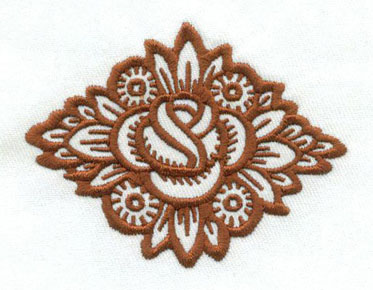Raster to Vector Conversion Services: Time-Saving and Accurate Solutions for Industry Needs
Raster to vector conversion is a vital process
in various industries, such as graphic design, engineering, architecture, and
manufacturing. Converting raster images to vector graphics provides numerous
benefits, including scalability, flexibility, and precise editing capabilities.
However, undertaking this task in-house can be time-consuming and may lack the
necessary expertise. This article explores the advantages of outsourcing raster to vector conversion services
to experienced providers, emphasizing the time-saving aspect, accuracy of
conversions, and meeting specific industry requirements. Additionally, we delve
into key considerations when selecting a reliable conversion service.
I. Time-Saving Benefits of Outsourcing Raster to Vector Conversion
Efficient resource allocation: By outsourcing
raster to vector conversion, businesses can allocate their internal resources
to core tasks, saving valuable time and improving overall productivity.
Quick turnaround: Professional vector art conversion services
specialize in this task, allowing for faster completion of projects compared to
in-house efforts.
Scaling capabilities: Outsourcing allows businesses to handle large volumes of raster images efficiently, ensuring timely delivery and avoiding project delays
II. Ensuring Accurate Conversions
Expertise and experience: Professional
conversion service providers possess a skilled team of experts who are
well-versed in the intricacies of raster to vector conversion. Their experience
ensures accurate and high-quality results.
Advanced tools and techniques: These services
employ cutting-edge software and advanced techniques to ensure precise
conversion from raster to vector. Manual processes and automated tools are used
to achieve superior accuracy.
Quality control measures: Reputed vector conversion service providers have stringent quality control measures in place. They perform thorough checks to validate the accuracy and quality of the converted vector graphics.
III. Catering to Specific Industry Requirements
Industry-specific knowledge: Professional
conversion services understand the specific needs and requirements of different
industries. They have the expertise to cater to the unique demands of sectors
like architecture, engineering, fashion, and more.
Customization options: Reliable providers
offer customization options to meet the precise specifications of clients. This
ensures that the converted vector graphics align with industry standards and
project requirements.
File format compatibility: Conversion services
can deliver vector graphics in various formats such as AI, EPS, SVG, and DXF,
ensuring compatibility with different software and systems used in specific
industries.
Considerations When Choosing a Reliable Conversion Service:
1. Reputation and track record: Look for
service providers with a proven track record of delivering high-quality
conversions. Check reviews, testimonials, and sample works to assess their
reputation.
2. Expertise and technical capabilities:
Ensure that the vector art service provider
has a team of skilled professionals and access to advanced tools and software
for accurate conversions.
3. Data security and confidentiality: As raster images may contain sensitive information, prioritize service providers who guarantee data security and adhere to strict confidentiality protocols.
FAQs:
Q1: How long does it typically take to convert
a raster image to a vector graphic?
A1: The time taken for conversion depends on
factors such as the complexity of the image, project volume, and the service
provider's capacity. However, professional conversion services generally
provide quick turnaround times, often within 24 to 48 hours.
Q2: Can raster to vector conversion services
handle large-scale projects?
A2: Yes, professional vector conversion services are equipped to handle large-scale
projects efficiently. They have the necessary resources, manpower, and technology
to process and convert a high volume of raster images into vector graphics
within tight deadlines.
Q3: What are the benefits of receiving vector
graphics in different formats?
A3: Receiving vector graphics in multiple
formats such as AI, EPS, SVG, and DXF offers versatility and compatibility.
Different industries and software applications may require specific formats,
and having the option to choose ensures seamless integration into existing
workflows.
In conclusion, outsourcing raster to vector conversion services
provides a comprehensive solution that not only saves time but also guarantees
accurate conversions and meets specific industry requirements. By selecting a
reputable service provider and leveraging their expertise, businesses can
streamline their processes, enhance productivity, and stay ahead of the
competition. Embracing the advantages of professional conversion services
empowers organizations to focus on their core competencies while reaping the
benefits of high-quality, industry-aligned vector graphics.


